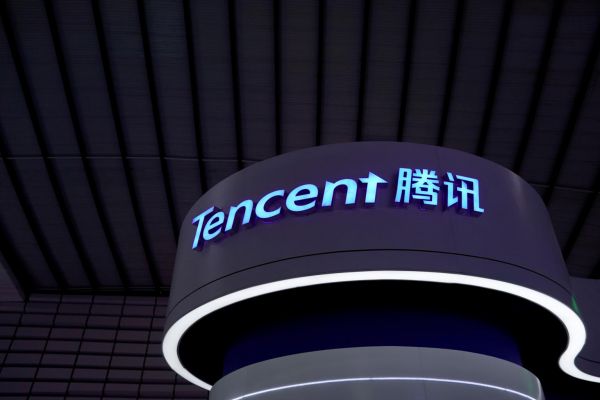[SINGAPORE] Tencent Holdings has chosen a co-working space for its first office in Singapore, joining other Chinese tech giants in using the city-state for a launching pad into the rest of Asia.
The WeChat owner will have almost 200 seats at JustCo’s co-working space in OCBC Centre East at Raffles Place, according to people familiar with the plans, who asked not to be named because the matter is private. The space amounts to 10,000 square feet, or 929 square metres.
The lease runs for one year, giving China’s largest social media and video-gaming company flexibility to seek a larger space as it adds staff, the people said. Tencent said in September that it would open an office in Singapore.
Representatives for Tencent and JustCo didn’t immediately respond to requests for comment.
The deal paves the way for Tencent to make Singapore its beachhead for a push into South-east Asia.
Bytedance, the owner of popular video app TikTok, is also expanding its office space in the city-state, while Alibaba Group earlier this year bought a 50 per cent stake in a Singapore office tower.
The demand from Chinese tech firms could also boost Singapore’s office market, which has been battered by the coronavirus pandemic, with some companies vacating leases and landlords forced to cut rents.
Tech firms have taken up 350,000 square feet of office space in new leases and expansions this year, and that could rise to 400,000 to 500,000 square feet next year, Cushman & Wakefield estimates.
Singapore is seen as an attractive base as it provides a gateway to South-east Asia’s 650 million smartphone-savvy population. It also offers relative political stability and developed financial and legal systems.
China’s tech giants are increasingly turning their attention to the region amid growing hostility from the US and India.
The Trump administration wants to remove WeChat from mobile app stores in the US and impose other restrictions, though a court has blocked the move. India has barred the company’s hit games PUBG Mobile and Arena of Valor.
Choosing a co-working space gives companies “the advantage to be flexible in markets where headcount growth is unclear and there is a possibility that business can grow so quickly that they run out of space,” said Christine Li, head of research and business development services for South-east Asia at Cushman. It’s a common strategy for tech firms entering a new market, with Alibaba and Facebook having done so when they started in Singapore.

